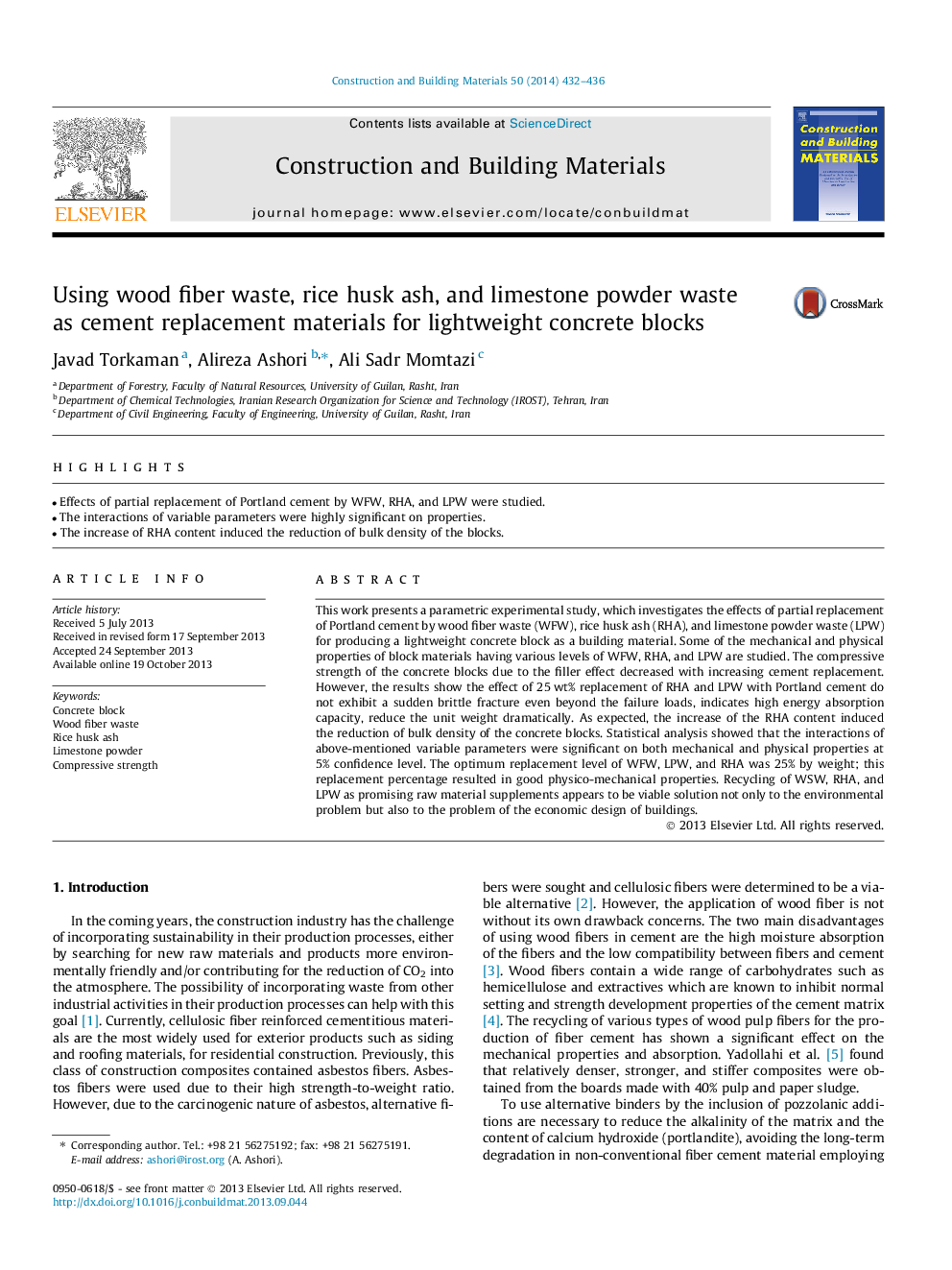| Article ID | Journal | Published Year | Pages | File Type |
|---|---|---|---|---|
| 257902 | Construction and Building Materials | 2014 | 5 Pages |
•Effects of partial replacement of Portland cement by WFW, RHA, and LPW were studied.•The interactions of variable parameters were highly significant on properties.•The increase of RHA content induced the reduction of bulk density of the blocks.
This work presents a parametric experimental study, which investigates the effects of partial replacement of Portland cement by wood fiber waste (WFW), rice husk ash (RHA), and limestone powder waste (LPW) for producing a lightweight concrete block as a building material. Some of the mechanical and physical properties of block materials having various levels of WFW, RHA, and LPW are studied. The compressive strength of the concrete blocks due to the filler effect decreased with increasing cement replacement. However, the results show the effect of 25 wt% replacement of RHA and LPW with Portland cement do not exhibit a sudden brittle fracture even beyond the failure loads, indicates high energy absorption capacity, reduce the unit weight dramatically. As expected, the increase of the RHA content induced the reduction of bulk density of the concrete blocks. Statistical analysis showed that the interactions of above-mentioned variable parameters were significant on both mechanical and physical properties at 5% confidence level. The optimum replacement level of WFW, LPW, and RHA was 25% by weight; this replacement percentage resulted in good physico-mechanical properties. Recycling of WSW, RHA, and LPW as promising raw material supplements appears to be viable solution not only to the environmental problem but also to the problem of the economic design of buildings.
